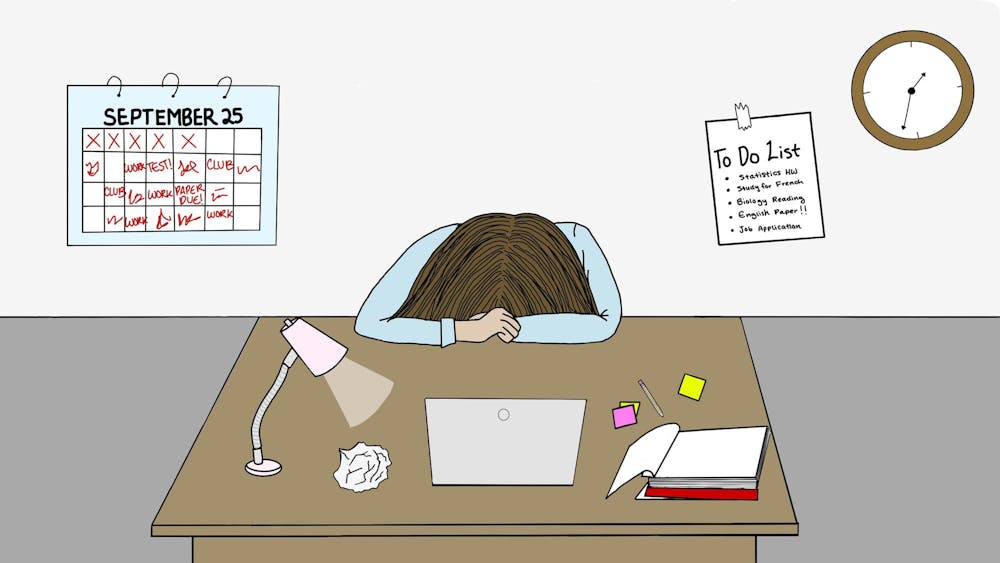College life puts pressure on health in a million different ways. For many students, the warning of the freshman fifteen seems like the only health advice that matters, because it’s all anyone talks about. Even before we step on campus, the rumors and expectations of the freshman fifteen chase us around ad nauseam. When I started college last fall, the freshman fifteen felt like the only thing to be anticipated in the sea of change that college brings.
I was so determined to avoid the freshman fifteen that for my first semester, I would work out relentlessly in my unhygienic apartment gym; even when, as the weather turned colder, I unknowingly developed walking pneumonia. I didn’t realize until I left for Christmas break expecting to recover quickly in the comfort of my home and the care of my family, but only got worse until ultimately my parents forced me to see a doctor.
As I soon learned, exerting too much physical effort while you have walking pneumonia is dangerous, and can damage your body permanently. Luckily, my body recovered fully, but I narrowly avoided the repercussions of my stupidity.
As Hippocrates, the widely coined founder of modern medicine, once said, “A wise man should consider that health is the greatest of the human blessings, and learn how, by his own thought, to derive benefit from his illnesses.”
I try to look back on my experience and derive benefit from it, per Hippocrates advice. What I learned is that health is a measure of the whole being, that survives only with careful and thoughtful stewardship. It is not a measure of any specific capacity necessarily, but it is the ability to process and enjoy the natural world to the furthest extent possible.
When you lived at home, you probably emulated your families' habits to tell you when to eat, when you needed rest, or when you needed to get up and move. It is more difficult to begin navigating those things on your own, but it is necessary in the transition to adulthood. Beginning to find an awareness of your personal health that has deeper roots than weight or strength or appearance is what allows you to count health as a blessing not a burden.
In closing, I urge you again to consider the words of Hippocrates, and by your own thought, consider that your health in college can be not just a responsibility but a gift, when it's properly understood and stewarded.
Do you like this story? The Plainsman doesn't accept money from tuition or student fees, and we don't charge a subscription fee. But you can donate to support The Plainsman.





